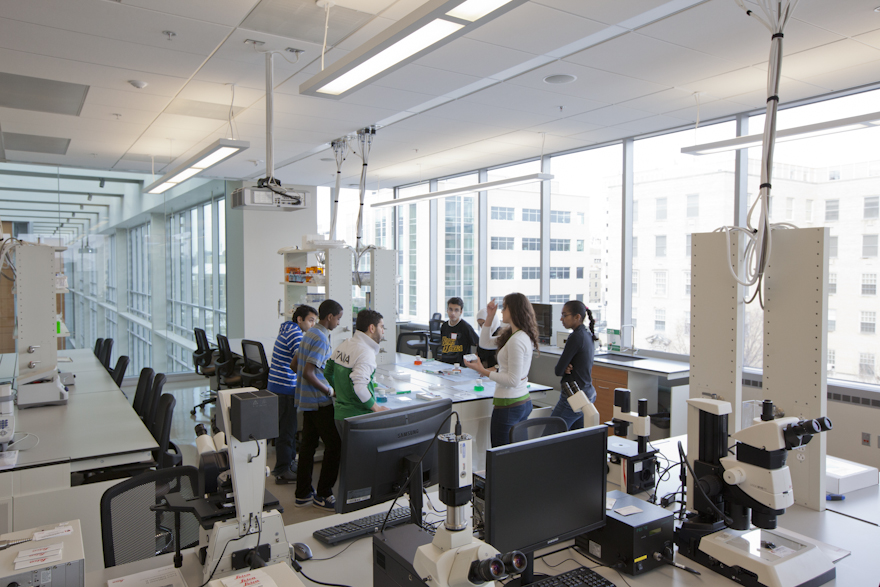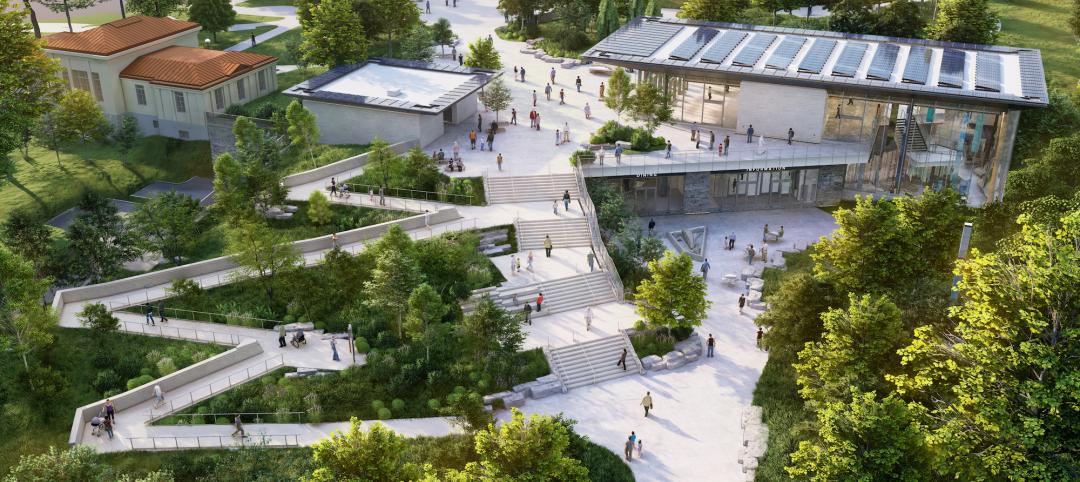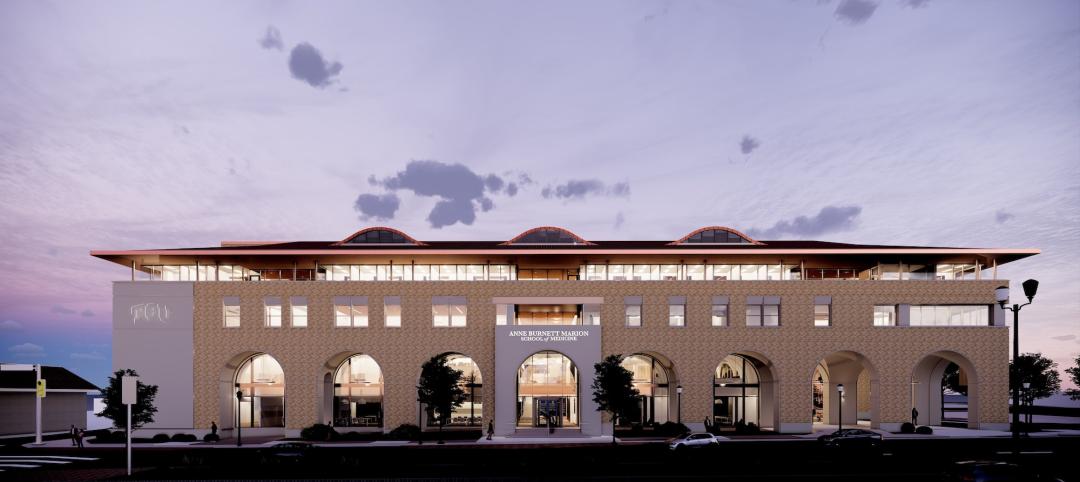After Moody’s and other credit ratings agencies tightened their standards a few years ago, universities had to become much more disciplined about their financing mechanisms.
“Internally, we are paying a great deal of attention to cash on hand relative to debt to maintain our good ratings,” says Gonzaga University EVP Marty Martin. “It’s a constant reference point.”
“The financing climate is different than it was 20 years ago,” notes UC Santa Barbara Campus Architect Marc Fisher, AIA. “The state is not funding construction at the same pace. We’re going to see more student-funded, donor-funded, and research-funded projects. We’ll see more creative funding in the future.”
One such creative funding option is the public-private partnership. The PPP strategy is most popular for student housing, mixed-use buildings, parking facilities, and retail—any project with a revenue stream.
The University of Texas at Dallas recently selected Balfour Beatty and Wynne/Jackson to develop a mixed-use project near the edge of the campus. To be called “Comet Town,” the project will be financed through a land lease, whereby the university will lease the land to the developer who will build, own, and operate the building for a specific period.
Apartments will be open to the public, but most residents are expected to be part of the UT community, says Dr. Calvin Jamison, VP of Administration.
The University of Wisconsin–Madison has employed third-party partnerships sparingly, but did so twice when a private developer needed more space to build on a couple of residential/retail properties adjacent to campus.
The state university also teamed up with the Morgridge Institute for Research a few years ago to build the Wisconsin Institutes for Discovery, a research lab that includes retail/restaurant space. Half of the lab space is privately owned.
In the wake of the recession, Cornell University instituted new guidelines for major capital projects. “One of the pillars of the new policy was no new debt,” says University Architect Gilbert Delgado, AIA. “Funding for all projects has to be either identified or on hand before a project goes forward.”
For Weill Cornell Medical College, a New York City institution since 1898, the university is exploring the construction of a major residential tower with a private developer. “Our goal is to make housing more affordable for students, faculty, and staff,” says Delgado.
To keep rents affordable, future residential projects in the city might include so-called micro apartments about half the size of a studio unit, supplemented with more generous common areas. Delgado says the university is also studying how to build more affordable housing in Ithaca—“maybe through PPP-type land-lease agreements,” he says.
More from BD+C's exclusive report, "How your firm can gain an edge on university projects."
Related Stories
Urban Planning | Jan 18, 2023
David Adjaye unveils master plan for Cleveland’s Cuyahoga Riverfront
Real estate developer Bedrock and the city of Cleveland recently unveiled a comprehensive Cuyahoga Riverfront master plan that will transform the riverfront. The 15-to-20-year vision will redevelop Tower City Center, and prioritize accessibility, equity, sustainability, and resilience.
Museums | Jan 18, 2023
Building memory: Why interpretive centers matter in an era of social change
The last few years have borne witness to some of the most rapid cultural shifts in our nation’s long history. If the experience has taught us anything, it is that we must find a way to keep our history in view, while also putting it in perspective.
ProConnect Events | Jan 17, 2023
3 ProConnect Single Family events for Home Builders and Product Manufacturers set for 2023
SGC Horizon, parent company of ProBuilder, will present 3 ProConnect Single Family Events this year. At ProConnect Single Family, Home Builders meet in confidential 20-minute sessions with Building Product Manufacturers to discuss upcoming projects, learn about new products, and discover practical solutions to technical problems.
University Buildings | Jan 17, 2023
Texas Christian University breaks ground on medical school for Dallas-Fort Worth region
Texas Christian University (TCU) has broken ground on the Anne Burnett Marion School of Medicine, which aims to help meet the expanding medical needs of the growing Dallas-Fort Worth region.
Green | Jan 17, 2023
Top 10 U.S. states for green building in 2022
The U.S. Green Building Council (USGBC) released its annual ranking of U.S. states leading the way on green building, with Massachusetts topping the list. The USGBC ranking is based on LEED-certified gross square footage per capita over the past year.
Libraries | Jan 13, 2023
One of the world’s largest new libraries opens in Shanghai
Designed by Schmidt Hammer Lassen Architects, Shanghai Library East covers more than 1.2 million sf, 80% of it dedicated to community activity.
Religious Facilities | Jan 9, 2023
Santiago Calatrava-designed St. Nicholas Greek Orthodox Church opens in New York
In December, New York saw the reopening of the new St. Nicholas Greek Orthodox Church and National Shrine—the only religious structure destroyed on 9/11. Renowned architect and engineer Santiago Calatrava designed St. Nicholas Church to address the traditional Greek Orthodox liturgy while honoring the Church’s connection with the World Trade Center Memorial site.
Government Buildings | Jan 9, 2023
Blackstone, Starwood among real estate giants urging President Biden to repurpose unused federal office space for housing
The Real Estate Roundtable, a group including major real estate firms such as Brookfield Properties, Blackstone, Empire State Realty Trust, Starwood Capital, as well as multiple major banks and CRE professional organizations, recently sent a letter to President Joe Biden on the implications of remote work within the federal government.
Sustainability | Jan 9, 2023
Innovative solutions emerge to address New York’s new greenhouse gas law
New York City’s Local Law 97, an ambitious climate plan that includes fines for owners of large buildings that don’t significantly reduce carbon emissions, has spawned innovations to address the law’s provisions.
Fire and Life Safety | Jan 9, 2023
Why lithium-ion batteries pose fire safety concerns for buildings
Lithium-ion batteries have become the dominant technology in phones, laptops, scooters, electric bikes, electric vehicles, and large-scale battery energy storage facilities. Here’s what you need to know about the fire safety concerns they pose for building owners and occupants.

















